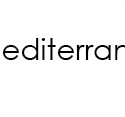The 10th Mediterranean Morphology Meeting (MMM10) will take place at the University of Haifa (Israel) on September 7-10, 2015.
The aim of MMM is to bring together linguists who work on morphology in an informal setting which guarantees maximal interaction between researchers, and gives young linguists an opportunity to present their work at a conference of moderate size, with no parallel sessions, where fruitful contacts with senior linguists can be established.
The theme of the conference will be:
MMM celebrates its 10th meeting with a look at the present and future of morphology. How has the field evolved over the last years? Where do we stand now? And, most importantly, where do we go from here? We welcome contributions that explore new empirical and methodological directions in morphology, especially in the following domains:
– Morphology and grammar: what is (or should be) the place of morphology in linguistic theory? How do we face well-known challenges to foundational issues such as the notion of word, the Lexical Integrity Hypothesis, or the universality of lexical/grammatical categories?
– Morphology and cognition: what can morphology tell us about the mind and language acquisition? How can we reconcile morphological theory and experimental research? What can morphology learn from the other cognitive sciences?
– Morphology and computation: what are the new frontiers for computational approaches to morphology? How is the “big-data effect” affecting morphological research / theory?
Following the MMM tradition, beside the Thematic session (“Quo vadis”), there will be a Free topic session that welcomes all kinds of contributions on morphology and related disciplines.
We explicitly welcome contributions on sign languages, which show how morphology in an alternative natural language modality may shed light on morphology in general.
Invited speakers
Stephen R. Anderson (Yale University)
Mark Aronoff (Stony Brook University)
Ray Jackendoff (Tufts University)
Program outline
Sept 7: morning: free guided tour of Haifa
afternoon: Workshop on languages in Israel (Hebrew, Arabic, and local sign languages)
Sept 8: Thematic session “Quo vadis morphology?”
Sept 9: Free topic session
Sept 10: Excursion (details to be posted on the MMM10 website)
Abstract submission
We invite abstracts (500 words maximum, excluding bibliography) for oral presentations or posters. Each abstract will be reviewed anonymously by the MMM Permanent Committee and the MMM Local Organizing Committee.
Abstracts should be sent to mmm10haifa@gmail.com.
Please attach two versions of the abstract: one with authors’s names and one anonymous (both should be in .pdf format). In the body of the mail, please specify:
authors’ names and contact details;
title of abstract;
intended session (Thematic session, Free topic session, Workshop on local languages of Israel);
format preference (oral presentation or poster).
Important dates
Deadline for abstract submission: March 1, 2015.
Notification of decision: May 15, 2015.
Program available: May 31, 2015.
Early bird registration: July 1, 2015
Fees
Early bird registration
(until July 1)
Regular registration
(after July 1)
Student fee
20 Euros
35 Euros
Regular fee
55 Euros
75 Euros
MMM Local Organizing Committee
Wendy Sandler (University of Haifa), Chair
Edit Doron (Hebrew University of Jerusalem)
Elizabeth Ritter (Ben Gurion University)
Elinor Saiegh-Haddad (Bar Ilan University)
Shuly Wintner (University of Haifa)
Outi Bat-El (Tel Aviv University)
MMM Permanent Committee
Jenny Audring (University of Amsterdam)
Geert Booij (Leiden University)
Nikos Koutsoukos (University of Patras)
Francesca Masini (University of Bologna)
Angela Ralli (University of Patras)
Sergio Scalise (University of Bologna)
Contact
mmm10haifa@gmail.com
MMM10 website
http://mmm10.haifa.ac.il/index.php?lang=en
MMM permanent website
http://www3.lingue.unibo.it/mmm2/


